|
Books Should Be Free Loyal Books Free Public Domain Audiobooks & eBook Downloads |
|
|
Books Should Be Free Loyal Books Free Public Domain Audiobooks & eBook Downloads |
|
Tragedies |
|---|
Book type:
Sort by:
View by:
|
By: Lord George Gordon Byron (1788-1824) | |
|---|---|
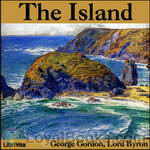 The Island
The Island
Written late in his career, Byron's narrative poem The Island tells the famous story of the mutiny on board the Bounty, and follows the mutineers as they flee to a South Sea island, "their guilt-won Paradise." | |
By: Anton Chekhov (1860-1904) | |
|---|---|
 Ivanov
Ivanov
Nicolai (anglicised Nicholas in this translation) Ivanov, a middle-aged public servant, is unhappy. His wife Anna, disinherited by her family after converting from Judaism, is dying of tuberculosis. He is deeply in debt. And his best friend’s daughter is infatuated with him. Comedy and tragedy ensue in truly Chekhovian fashion. An example of the young Chekhov’s maturing style, Ivanov is an early harbinger of themes that would recur throughout his work. | |
By: August Strindberg (1849-1912) | |
|---|---|
 Creditors
Creditors
Creditors is an 1889 tragicomedy by August Strindberg that plumbs the depths of the twisted triangular relationship between Tekla, her husband Adolph, and her ex-husband Gustav. | |
By: Aeschylus (525/524 BC - c. 455/456 BC) | |
|---|---|
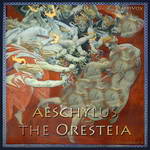 The Oresteia
The Oresteia
The Oresteia is a trilogy by Aeschylus, one of the foremost playwrights of ancient Greece. It encompasses three plays: Agamemnon, The Libation Bearers, and The Furies. It tells the tragic tale of the House of Atreus, whose inhabitants have been cursed and are doomed to play out their bloody, vengeful destinies. At the beginning of the first part, the Trojan War has ended and the Greek general, Agamemnon, is returning victorious to his wife Clytemnestra. Yet she finds it difficult to forgive his sacrifice of their daughter, Iphigenia, who was killed to ensure the Greek fleet fair winds in their voyage to Troy... | |
By: Morgan Robertson | |
|---|---|
 Futility, Or the Wreck of the Titan
Futility, Or the Wreck of the Titan
This novel was published a full 14 years before the sinking of the Titanic, but listeners may be surprised at how many parallels this fictional tale has with subsequent true events. The Titan is the largest and most technologically advanced steamship of her time. She is considered unsinkable. Her full speed crossings of the Northern Lane Route carry her rich passengers in the highest standards of luxury and comfort. The less well-off travel in rougher quarters but still benefit from the speed of travel... | |
By: John Webster (c.1580 - c.1634) | |
|---|---|
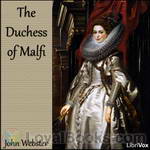 The Duchess of Malfi
The Duchess of Malfi
John Webster's bloody Jacobean tragedy exposes the decadence of the Italian court. The virtuous Duchess of Malfi, a young widow, secretly marries her steward Antonio, and is subsequently persecuted by her brothers: the sexually obsessed and eventually mad Ferdinand, and the corrupt Cardinal. | |
By: Euripides (480-406 BC) | |
|---|---|
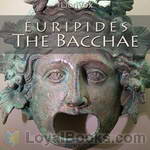 The Bacchae
The Bacchae
This tragedy is based on the mythological story of King Pentheus of Thebes and his mother Agave, and their punishment by the god Dionysus (who is Pentheus' cousin) for refusing to worship him. | |
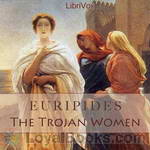 The Trojan Women
The Trojan Women
Euripides' play follows the fates of the women of Troy after their city has been sacked, their husbands killed, and as their remaining families are about to be taken away as slaves. However, it begins first with the gods Athena and Poseidon discussing ways to punish the Greek armies because they condoned Ajax the Lesser for dragging Cassandra away from Athena's temple. What follows shows how much the Trojan women have suffered as their grief is compounded when the Greeks dole out additional deaths and divide their shares of women. | |
By: Francis Brett Young (1884-1954) | |
|---|---|
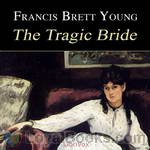 The Tragic Bride
The Tragic Bride
The story centers on Gabrielle Hewish, only and lonely child of Sir Jocelyn Hewish, a loveable lush and owner of the peaceful Roscarna estate nestled in the Irish countryside. In due course, young Gabrielle falls in love with a Navy man whose untimely demise sends her into a depression, and the consequences of which alter her future, culminating in a fascinating and quite unpredictable relationship with Mrs. Payne and her troubled son Arthur. A story of understanding in it’s finest sense and aptly titled, The Tragic Bride is both interesting as a story and telling as a character study. | |
By: Ford Madox Ford (1873-1939) | |
|---|---|
 The Good Soldier
The Good Soldier
The Good Soldier (1915) "... is set just before World War I and chronicles the tragedies of the lives of two seemingly perfect couples. The novel is told using a series of flashbacks in non-chronological order, a literary technique pioneered by Ford. It also makes use of the device of the unreliable narrator, as the main character gradually reveals a version of events that is quite different from what the introduction leads you to believe. The novel was loosely based on two incidents of adultery and on Ford's messy personal life.”Music in sections 1-5 "Minuet in G flat major and Valse Bluette" by Beethoven | |
By: Frank Norris (1870-1902) | |
|---|---|
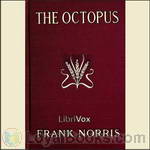 The Octopus
The Octopus
Frank Norris based his 1901 novel The Octopus (A Story of California) on the Mussel Slough Tragedy of 1880, a bloody conflict between ranchers and agents of the Southern Pacific Railroad. The central issue was over the ownership of the ranches, which the farmers had leased from the railroad nearly ten years earlier with intentions of eventually purchasing the land. Although originally priced at $2.50 to $5 per acre, the railroad eventually opened the land for sale at prices adjusted for land improvements; the railroad’s attempts to take possession of the land led the ranchers to defend themselves as depicted in the book. | |
By: Rita (E. M. Gollan) (1850-1938) | |
|---|---|
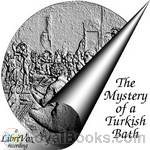 The Mystery of a Turkish Bath
The Mystery of a Turkish Bath
A group of guests, at an exclusive luxury hotel in Hampshire, are the witnesses of an illustration of occult powers, demonstrated by “the Mystery”, as Mrs. Jefferson named the beautiful stranger who one day appeared in the Turkish Baths of the hotel. The events that follow lead Mrs. Jefferson to question the wisdom of her interest in the occult. | |
By: Lagerlöf, Selma (1858-1940) | |
|---|---|
 The Treasure
The Treasure
Selma Lagerlöf was born in Vaermland, Sweden, in 1858 and enjoyed a long and very successful career as a writer, receiving the Nobel-Prize in Literature in 1909. She died in Vaermland in 1940. The Treasure (Herr Arnes penningar) is a fairly short Novel, both a Drama and a Ghost Story. Published in 1904 and the English translation in 1923. The story is set in Bohuslaen on the West coast of Sweden in the middle of the 16th Century. Herr Arne, the old Parson in Solberga and all his household are brutally murdered, and his great Treasure stolen... | |
By: Romain Rolland (1866-1944) | |
|---|---|
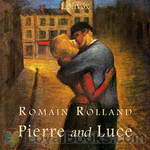 Pierre and Luce
Pierre and Luce
Pierre and Luce were an unlikely young pair who found themselves in the chaos of Paris during the war; Pierre, the shy, recently conscripted pacifist, and Luce, the free spirited artist in training, and both confused about the things going on around them. Why were these war birds flying overhead? Why these warning sirens, and occasional bombs exploding in the distance? Why did the government leaders, who didn't even know one another, hate and destroy so much? Why did these two delicate young adults find each other now? This story takes place between January 30 and Good Friday, May 29, 1918. (Introduction by Roger Melin) | |
By: Jean Racine (1639-1699) | |
|---|---|
 Phaedra
Phaedra
In the court of Louis XIV, adaptations of Greek tragedies were very popular. This play, heavily influenced by Euripides' Hippolytus, deals with love that violates social taboos. Note: In Racine's work, a new "scene" begins whenever a character enters or exits. Therefore, there are no stage directions, only a list of the characters on stage for each scene. The action is continuous for the entire act. | |
By: Johanna Brandt (1876-1964) | |
|---|---|
 The Petticoat Commando
The Petticoat Commando
In introducing the English version of this book I venture to bespeak a welcome for it, not only for the light which it throws on some little-known incidents of the South African war, but also because of the keen personal interest of the events recorded. It is more than a history. It is a dramatic picture of the hopes and fears, the devotion and bitterness with which some patriotic women in Pretoria watched and, as far as they could, took part in the war which was slowly drawing to its conclusion on the veld outside... | |
By: Francis Beaumont (1584-1616) | |
|---|---|
 The Maid's Tragedy
The Maid's Tragedy
Beaumont and Fletcher's The Maid's Tragedy (first published 1619) is a sensational Jacobean sex tragedy. When gentleman soldier Melantius returns to Rhodes, he finds his dear friend Amintor is recently married - but not to his troth-plight love Aspatia (the maid of the title). Instead, the King has arranged a match between Amintor and Melantius' sister, the beautiful Evadne. On his wedding night, Amintor finds that his new wife has married him under false pretenses - and this unleashes a torrent of dire consequences, sexual, emotional, and ultimately political. | |
By: William Shakespeare (1564-1616) | |
|---|---|
 Coriolanus
Coriolanus
Shakespeare was passionately interested in the history of Rome, as is evident from plays like Titus Andronicus, Julius Caesar, and Antony and Cleopatra. His tragedy Coriolanus was probably written around 1605-07, and dramatizes the rise and fall of a great Roman general, Caius Martius (later surnamed Coriolanus because of his military victory at Corioli). This play is unusual in that it provides a strong voice for the ordinary citizens of Rome, who begin the play rioting about the high price of food, and who continually clash with Coriolanus because of his contempt for plebians. | |
By: Euripides (480-406 BC) | |
|---|---|
 Medea
Medea
Euripides' tragedy focuses on the disintegration of the relationship between Jason, the hero who captured the Golden Fleece, and Medea, the sorceress who returned with him to Corinth and had two sons with him. As the play opens, Jason plans to marry the daughter of King Creon, and the lovesick Medea plots how to take her revenge. | |
By: William Shakespeare (1564-1616) | |
|---|---|
 Venus and Adonis
Venus and Adonis
Venus and Adonis is Shakespeare's narrative poem about the love of the goddess Venus for the mortal youth Adonis, dedicated partly to his patron, the Earl of Southampton (thought by some to be the beautiful youth to which many of the Sonnets are addressed). The poem recounts Venus' attempts to woo Adonis, their passionate coupling, and Adonis' rejection of the goddess, to which she responds with jealousy, with tragic results. This recording features three different readers performing the narration, Venus, and Adonis. | |
By: John Webster (1580-1634) | |
|---|---|
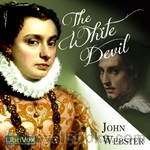 The White Devil
The White Devil
John Webster's The White Devil (1612) is a Jacobean revenge tragedy, replete with adultery, murder, ghosts, and violence. The Duke of Brachiano and Vittoria Corombona decide to kill their spouses, Isabella and Camillo, in order to be together, aided by the crafty and ambitious Flamineo, Vittoria's brother. Their actions prompt vows of revenge from Isabella's brother Francisco, the Duke of Florence, and Count Lodovico, who was secretly in love with her. The title refers to the early modern proverb that "the white devil is worse than the black," indicating the hypocrisy practiced by many of the characters in the play. | |
By: Henrik Ibsen (1828-1906) | |
|---|---|
 Rosmersholm
Rosmersholm
Rosmersholm is a play written in 1886 by Norwegian playwright Henrik Ibsen. In the estimation of many critics the piece is Ibsen’s masterwork, only equalled by The Wild Duck of 1884. As expressed by the protagonist, Rosmer, the theme of the play is social and political change, in which the traditional ruling classes relinquish their right to impose their ideals on the rest of society, but the action is entirely personal, resting on the conduct of the immoral, or amoral, “free thinking” heroine, Rebecca, who sets herself to undermine Rosmer’s religious and political beliefs because of his influential position in the community... | |
By: Aeschylus (c. 525 BCE - c. 456 BCE) | |
|---|---|
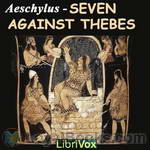 Seven Against Thebes
Seven Against Thebes
In this, the only extant tragedy from Aeschylus' trilogy about the House of Oedipus, Thebes is under siege from Polynices, a former prince of Thebes. After King Oedipus left his city and cursed the princes, Polynices and his brother, Eteocles, decided to rule alternately, switching at the end of every year. However, at the end of his year as king, Eteocles refused to turn power over to his brother and exiled him, fulfilling his father's curse that the two brothers could not rule peacefully. In the action of the play, Polynices and a group of Argive soldiers are attacking Thebes so that he can take his place as ruler... | |
By: Euripides (484 BC - 406 BC) | |
|---|---|
 Orestes
Orestes
In accordance with the advice of the god Apollo, Orestes has killed his mother Clytemnestra to avenge the death of his father Agamemnon at her hands. Despite Apollo’s earlier prophecy, Orestes finds himself tormented by Erinyes or Furies to the blood guilt stemming from his matricide. The only person capable of calming Orestes down from his madness is his sister Electra. To complicate matters further, a leading political faction of Argos wants to put Orestes to death for the murder. Orestes’ only hope to save his life lies in his uncle Menelaus, who has returned with Helen after spending ten years in Troy and several more years amassing wealth in Egypt... | |
By: William Shakespeare (1554-1616) | |
|---|---|
 Two Noble Kinsmen
Two Noble Kinsmen
The Two Noble Kinsmen is a Jacobean tragicomedy co-written by William Shakespeare and John Fletcher, first published in 1634. Set in ancient Greece during a war between Athens and Thebes, the narrative follows the title characters, Palamon and Arcite, noble youths whose friendship is destroyed by their mutual love for the beautiful Emilia. The subplot deals with the love and eventual madness of the Gaoler's Daughter, who falls hopelessly in love with Palamon. The play is based on "The Knight's Tale" by Chaucer, but also has echoes of Shakespeare's A Midsummer Night's Dream, as two of the major characters are Theseus and Hippolyta, who also appear in the earlier play. | |
By: Euripides (484 BC - 406 BC) | |
|---|---|
 Iphigenia in Tauris (Murray Translation)
Iphigenia in Tauris (Murray Translation)
The apparent sacrifice of Iphigenia at Aulis by her own father Agamemnon was forestalled by the godness Artemis, who by an adroit sleight of hand that fooled all participants, substituted a deer for the daughter. Wafted magically away to the “Friendless Shores” of savage Tauris and installed as chief priestess presiding over the human sacrifice of all luckless foreigners, Iphigenia broods over her “murder” by her parents and longs for some Greeks to be shipwrecked on her shores so she can wreak a vicarious vengeance on them... | |
 Alcestis
Alcestis
Alcestis is the earliest surviving play by Euripides. Alcestis, the devoted wife of King Admetus, has agreed to die in his place, and at the beginning of the play she is close to death. In the first scene, Apollo argues with Thanatos (Death), asking to prolong Alcestis' life, but Thanatos refuses. Apollo leaves, but suggests that a man will come to Pherae who will save Alcestis. Euripides' play is perhaps the most unusual Greek drama ever written: a tragedy that is not a tragedy. | |
By: BS Murthy | |
|---|---|
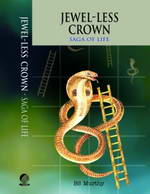 Jewel-less Crown: Saga of Life
Jewel-less Crown: Saga of Life
This fascinating saga of life exemplifies the material raise and moral fall of Gautam and Sneha and also the poignant end of the latter and the spiritual rise of the former that is after the fall. Besides, this piquant story depicts the tragic life of their son Suresh Prabhu and his eventual redemption through love for and of Vidya. Book One, Artha and Kama, is about conflict and resolution arising out of ambition and achievement, intrigue and betrayal, compulsion and compromise, sleaze and scandal, trial and sentence and regret and remorse spread over eighteen chapters... | |
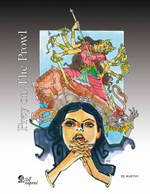 Prey on the Prowl - A Crime Novel
Prey on the Prowl - A Crime Novel
Who could have poisoned Ranjit the realtor, Shakeel the Inspector, Pravar the criminal and Natya his accomplice? Well the needle of suspicion tilted towards Pravar that was till he perished with his mate, but then who was the one? Could it be Radha under the scanner for her role in the death of her husband Madhu and his mistress Mala, Pravar's sister? Or was it Ranjit's spouse Kavya, who owing to Stockholm Syndrome, takes to Pravar her kidnapper. As these deaths by poisoning puzzle Dhruva, Radha, who worms her way into his life, avers that Kavya had the motive and the means to kill her spouse, her paramour and his wife besides the cop... | |
By: Thomas Dekker | |
|---|---|
 Witch of Edmonton
Witch of Edmonton
Mother Elizabeth Sawyer is a poor, lonely, and unfairly ostracized old woman with nothing left to lose. Frank is a poor farmer who intends to marry his beloved Winnifred, who is pregnant with his child, but is pressured to marry Susan, the rich yeoman's daughter. Young Cuddy Banks is a clown who pines after a girl who doesn't love him. When Mother Sawyer turns to witchcraft after being unjustly accused of it, a talking devil-dog named Tom comes to her aid, becoming her familiar and only friend. Though she intends to get her revenge, little does she know many of those around her are only too willing to sell their souls to the devil all by themselves... | |
By: William Shakespeare (1564-1616) | |
|---|---|
 Tragedy of King Richard II (version 2)
Tragedy of King Richard II (version 2)
Billed by scholars as the first part of the all-encompassing Henriad, Richard II is a richly satisfying probe into the inner workings of monarchical rule and its evolution from being seen as divinely held to a more modern conception that incorporates political cunning. Shakespeare positions the titular Richard in the former position, his shortcomings as England's leader made all too clear when he bungles the handling of a judicial duel, and then later seizes money and assets that are not rightfully his in order to fund an Irish war... | |
By: Susanna Centlivre (1680-1723) | |
|---|---|
 Perjur'd Husband, or The Adventures of Venice
Perjur'd Husband, or The Adventures of Venice
Centlivre's first play: a tragedy. Star-crossed lovers, one married and the other betrothed elsewhere. Secret letters gone astray, gender changing disguises, climax at masked ball. - Summary by ToddHW Cast list: Count Bassino, a Savoyard, married to Placentia, and in Love with Aurelia: Mike Manolakes Armando, Bassino's Friend: Alan Mapstone Alonzo, a Venetian Gentleman, betrothed to Aurelia: Wayne Cooke Pizalto, a Noble Venetian: Greg Giordano Ludovico, a Frenchman: Rémi Placentia, Bassino's Wife:... | |